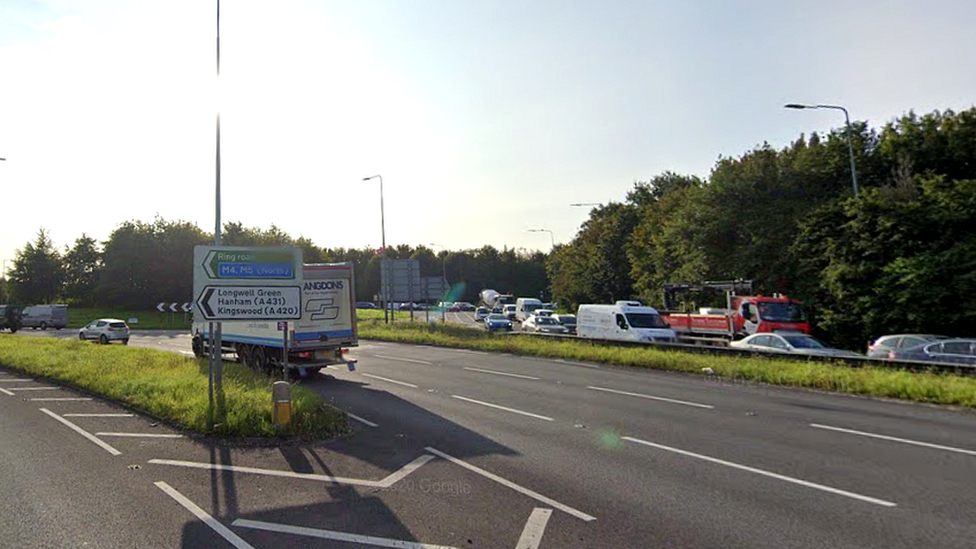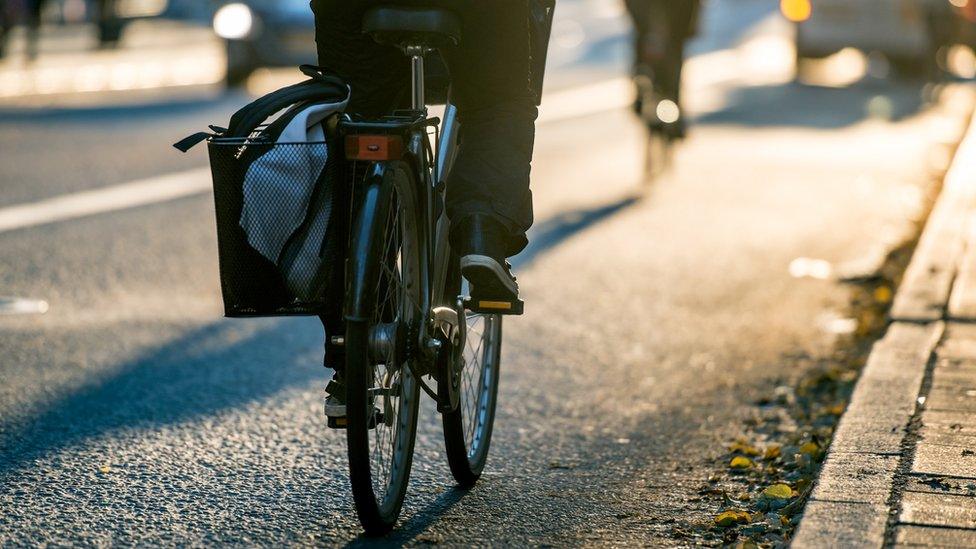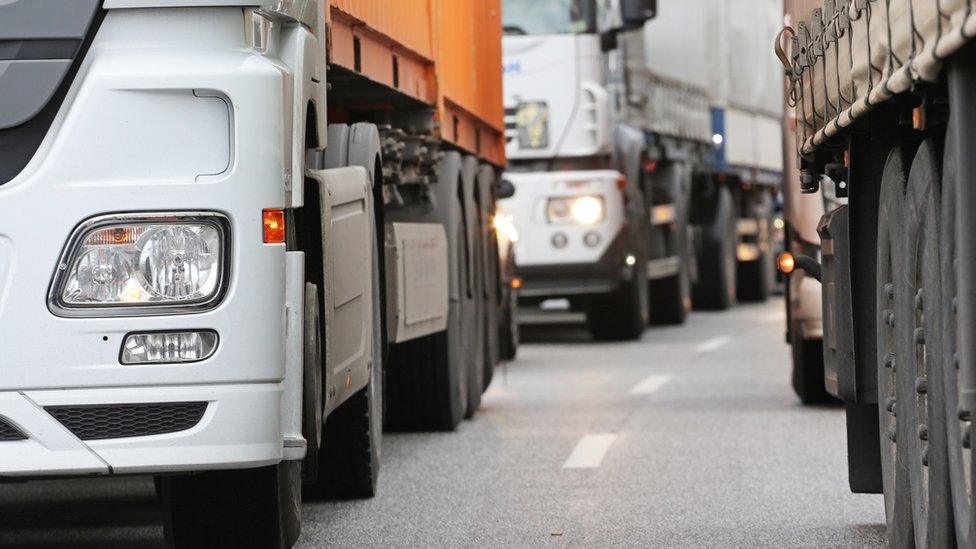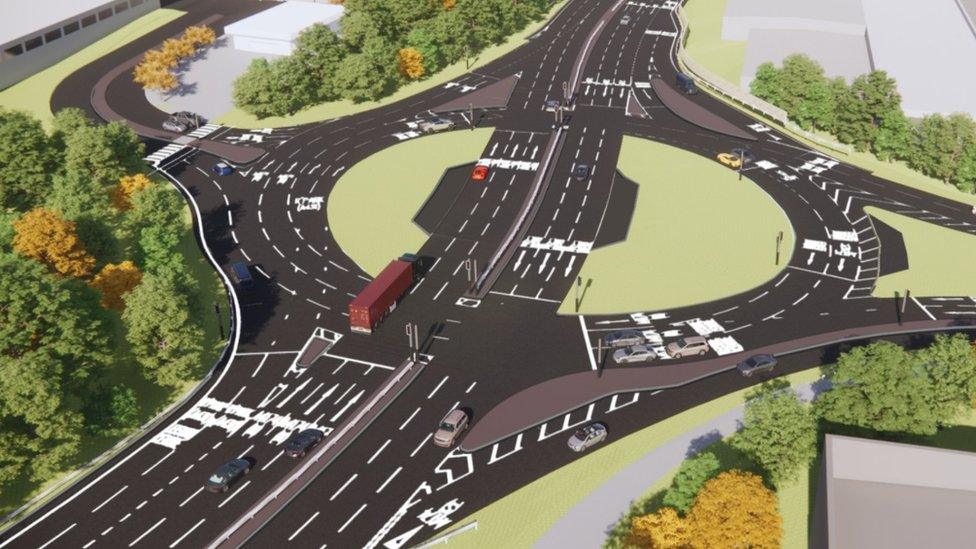Buses could run between Bristol and Bath every five minutes
- Published

The A4 between Bath and Bristol is often affected by congestion
Buses will travel between two cities every five minutes under plans to drive down car use and cut congestion.
A "strategic corridor" will see buses prioritised and a nine-mile segregated cycling lane created along the A4 between Bristol and Bath.
Currently less than a fifth of the road has cycle facilities, a report prepared for Bath and North East Somerset Council said.
That, combined with air pollution, is putting people off cycling, it claims.
The report, which will be presented to the council's cabinet next week, says: "The increase in population from housing growth, and the increase in the working population, will increase the travel demand along the corridor.
"If more attractive sustainable alternatives are not introduced this growth will result in higher congestion in the area, poorer air quality and higher carbon emissions."
If no action is taken, the cost of congestion in the West of England could increase to £800million a year by 2036, it claims, according to the Local Democracy Reporting Service (LDRS).
If the £150million project is approved, construction work is expected to begin at the start of 2025.

It is hoped the new route would provide more incentives for people to cycle between the two cities
The vision for the Bristol and Bath strategic corridor is "to create a high-quality segregated and prioritised public transport, cycling and walking corridor".
It aims to provide reliable, high quality, zero emission buses leaving every five minutes between Bath bus station and Bristol Temple Meads, 24-hour bus priority and a simple, fast and convenient off-board ticketing system.
The plan to increase cycling between the two cities is to create a continuous, direct, high-quality cycle route that is segregated from general traffic and buses.

Follow BBC West on Facebook, external, Twitter, external and Instagram, external. Send your story ideas to: bristol@bbc.co.uk , external
Related topics
- Published8 December 2021

- Published3 November 2021

- Published2 December 2020
